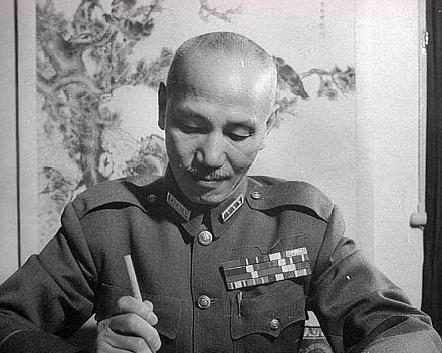After crossing the Jinsha River, the Central Red Army continued north along Huili to Xichang Avenue, preparing to cross the Dadu River into western Sichuan. The Dadu River is a major tributary of the Min River, with a width of 300 meters, deep water flow, and steep mountains on both sides. Old Chiang tried in vain to turn the Red Army into "Shi Dakai Second" by virtue of the dangerous terrain, so he ordered Xue Yue to lead the Central Army to pursue closely behind, and on the other hand ordered the Sichuan Army to build a fortress along the left bank of the Dadu River to block the Red Army.

At this time, the Red Army was in a very dangerous situation and had to cross the Dadu River before the enemy's pursuers arrived. In the end, the superiors entrusted this arduous task to the 1st Regiment of the Red 1st Division, when the regimental commander of the 1st Regiment was Yang Dezhi and the political commissar was Li Lin. For Yang Dezhi, Presumably everyone is no stranger, he is a native of Zhuzhou, Hunan, joined the Red Army at the age of 17, experienced the Agrarian Revolutionary War, the Long March, the War of Resistance Against Japan, the War of Liberation, the War to Resist US Aggression and Aid Korea, and the War of Self-Defense and Counterattack against Vietnam.
As for Li Lin, not many people knew. A native of Pingjiang, Hunan Province, he returned to his hometown to become a primary school teacher after graduating from normal school. After the defeat of the Great Revolution, together with Li Yongquan, a member of the Communist Party, he mobilized the local enthusiastic youth of Pingjiang, organized a peasant Red Guard army, and waged a tit-for-tat struggle against the local reactionary militia and the "homecoming regiment." Soon after, due to his outstanding performance, Li Lin was transferred by his superiors to be the leader of the guerrilla group in Xianzhong District.
In August 1930, Li Lin led the guerrillas to join the Red 16th Army, and successively served as the commander and political commissar of the Independent First Regiment, the political commissar of the Red 24th Division, and the acting political commissar of the 6th Division of the Red 3rd Army, during which he led the troops to participate in many anti-"encirclement and suppression" operations. In 1934, Li Lin was transferred to the political commissar of the 1st Regiment of the 1st Division of the Red 1st Army, and the regimental commander at that time was Yang Dezhi. In October of the same year, due to the failure of the fifth anti-"encirclement and suppression" campaign, the Central Red Army was forced to start the Long March. As the vanguard of the whole army, the Red 1 Regiment fought many hard and vicious battles along the way.
After accepting the task of forcibly crossing the Dadu River, Li Lin and Yang Dezhi led their troops to the Dadu River on the evening of May 24 after a rapid march of more than 80 kilometers. In order to disperse the enemy's firepower, Li Lin and Yang Dezhi decided to act separately, Yang Dezhi led the first battalion to attack The enemy at Anshun Field, and Li Lin led the second battalion to pretend to attack downstream of the ferry to contain the enemy's firepower. With the tacit cooperation of the two men, the Red 1st Regiment took only more than 20 minutes to capture the enemy-controlled Anshunchang ferry.
Early the next morning, 18 warriors of the Red 1st Regiment used the only wooden boat to force the Dadu River, and under the cover of the gunner Zhao Zhangcheng, the 18 warriors successfully docked, and repelled the counterattack of the Sichuan army and controlled the ferry. The follow-up troops took the opportunity to cross the river and crush the Sichuan army, and the Red Army thus crossed the Dadu River, which was regarded by the enemy as insurmountable. After that, Li Lin and Yang Dezhi led a red regiment over jiajin mountain, through the large meadow, captured the dangerous Lazikou, defeated the incomparably difficult and harsh environment and the fierce enemy, and reached northern Shaanxi in victory.
After that, Li Lin successively served as the political commissar and political commissar of the Recruit Training Department and the political commissar of the Supplementary Division, and the acting division commander and political commissar of the Shaanxi-Gansu-Ningxia Independent First Division, and in May 1937, he unfortunately died of illness at the age of 30. After Li Lin's death, Yang Dezhi made a very high evaluation of him: "I have always felt that Comrade Li Lin's short life was vigorous. Every victory of the Red Regiment in the Long March condensed his painstaking efforts. All comrades, including myself, have been taught by him. "If it weren't for his untimely death, judging by his seniority and merits, Li Lin's later achievements would certainly not be small."
For more exciting content, come and follow Brother Tsubasa's history class